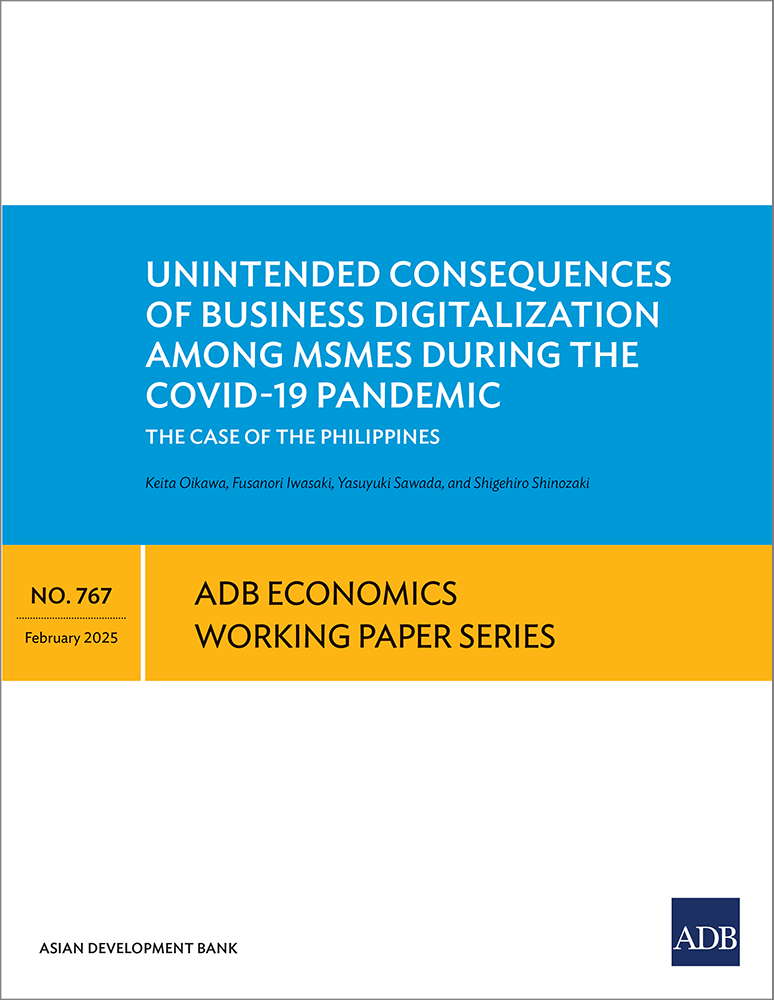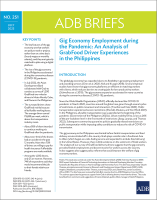Unintended Consequences of Business Digitalization among MSMEs During the COVID-19 Pandemic: The Case of the Philippines
 Download (575.18 KB)
Download (575.18 KB)
Publication Type:
Publisher:
Asian Development Bank (ADB)
Publication:
February 2025
This paper examines whether e-commerce use strengthened the performance of MSMEs during the COVID-19 pandemic, and proposes policy actions.
The COVID-19 pandemic profoundly impacted people’s lives, social activities, and businesses. It particularly affected micro, small, and medium-sized enterprises (MSMEs), which account for the vast majority of firms and most of the labor force. Compared with larger firms, MSMEs were less able to absorb the pandemic’s shocks, both in developed and developing economies.
This paper investigates whether e-commerce use in the Philippines strengthened MSME performance during the pandemic, based on a unique Asian Development Bank dataset on the impact of COVID-19 on Philippine businesses from 2020 to 2021.
The findings reveal that internet or e-commerce use did not lead to better MSME outcomes during the strict lockdown in March 2020. In fact, performance sometimes worsened. However, by August 2020, the negative effects had lessened, and by March 2021, a year into the pandemic, a positive impact had emerged. This delayed positive impact suggests that MSMEs need a certain level of maturity to effectively harness digital tools. The authors propose how policymakers could help enhance the resilience of MSMEs in the Philippines through digitalization, such as by establishing a regulatory framework to ensure fair competition for MSMEs on digital platforms. The paper complements a previous study on data from Indonesia.
Contents
- Introduction
- Philippine MSME Landscape and COVID-19 Impact
- Empirical Method
- Data
- Estimation Results
- Conclusion


